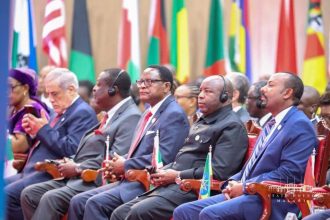Macra entices new telecoms entrants
Malawi Communications and Regulatory Authority (Macra) says it expects to attract new entrants into the country’s telecommunications and broadcasting sectors with the implementation of new Converged Licensing Framework (CLF).
Speaking at a news conference on Monday in Blantyre, Macra director general Godfrey Itaye said the new licencing regime—a response to the dynamic changes in the ICT sector—will see players in the sector being licensed on a four-tier category which includes network facilities licence, network services licence, application services licence and content services licence.

He said with the new licensing regime, players in the sector will be allowed to obtain a licence according to area of specialisation although the new licensing regime does not limit the number of licences a player can have.
He said: “At the moment, investment in the sector is capital intensive because for one to operate, one needs to cover all the areas from facilities, services, applications and content before the final product is realised, which is quite expensive.”
The network facilities licence will cover all network facilities of any nature, including towers cables, transmission poles and satellite earth stations while network services licence will cover operators that provide basic connectivity and broadband to support applications.
On the other hand, application services licence will cover operators that resell or procure services from network services operators to provide functions such as data, voice and e-commerce while content services licence will cover broadcasting services for both sound and television.
“For a tower alone, it costs an average of about $200 000 [K146 million], making it a capital intensive industry because of the huge capital outlay to construct the infrastructure and the network before the final product is actually realised. As a result, very few were going in,” said Itaye.
He said Macra hopes that with the new licencing regime, more players will enter the telecommunications industry because of the reduced barriers to entry and increased operational efficiency for licensees allowing the service providers to focus on their core business.”
Experts in the telecommunications industry have argued that because of heavy capital outlay, the sector has seen only a few operators rolling out their services despite issuing a number of licences in the last decade.
Figures from Macra show that the regulatory authority has licensed more than eight operators in the last 10 years, but only four operators—two mobile and two fixed—have rolled out their services.
Macra economist Andrew Nyirenda said currently, telecoms operators pay an average of $230 000 (about K167 million) in licensing fees while the new regime will breakdown the fees to $100 000 (K73 million) for infrastructure, $100 000 for network and $10 000 (K7.3 million) for application.





